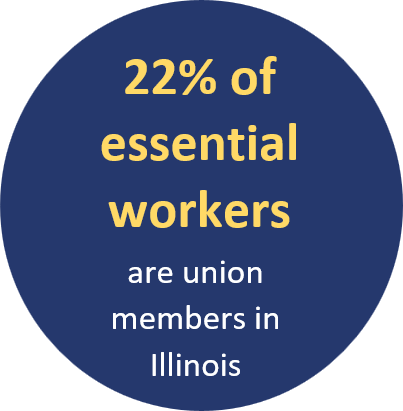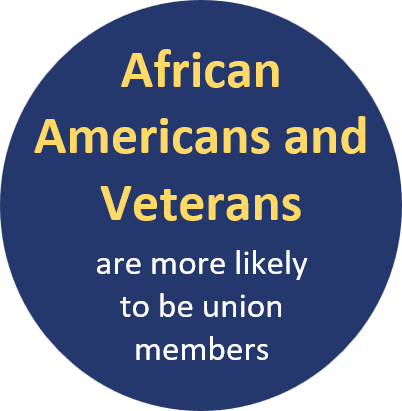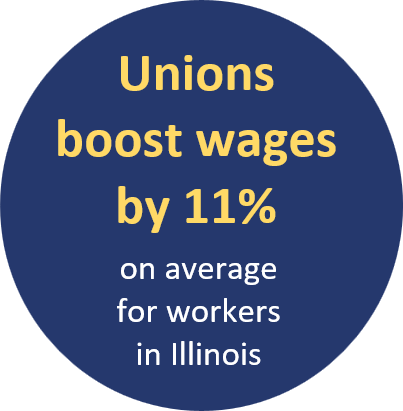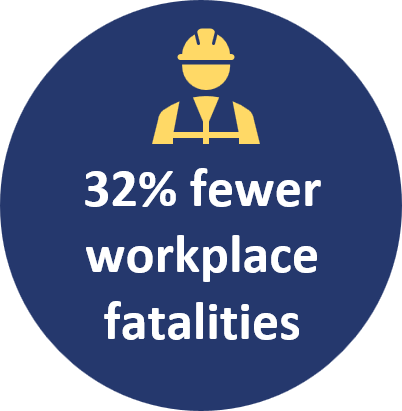The labor movement has historically provided U.S. workers with reliable pathways into good, middle-class jobs. Labor unions improve economic outcomes for workers primarily through collective bargaining, which is a process of negotiation between employers and workers that promotes democratic workplaces.
Unions households earn between 10% and 20% more than nonunion households.
95% of union workers have access to health care coverage compared with just 68% for nonunion workers.
68% of Americans support labor unions, with unions for teachers and nurses having the highest approval.
With nearly 800,000 members, unions continue to play an important role in communities across Illinois. Teachers, police officers, firefighters, construction workers, registered nurses, and delivery drivers all have high unionization rates in Illinois.
Union membership, however, has gradually declined across America due to the spread of so-called “right-to-work” laws. “Right-to-work” laws allow workers to free ride and take all the services and benefits of collective bargaining – such as higher wages, better health care, and legal representation – without paying anything for them. By restricting the ability of workers to join together and collectively bargain, “right-to-work” laws weaken unions.
“Right-to-work” states have:
3% lower wages for workers and 5% less health insurance coverage.
31% fewer apprentices per 100,000 workers.
17% lower economic productivity per worker.
More reliance on government assistance programs.
2 years lower life expectancy at birth and higher infant mortality rates
Illinois is one of 23 states, and the District of Columbia, with collective bargaining freedom laws. Compared with their counterparts in the 27 states with so-called “right-to-work” laws, the people of Illinois have:
The Workers’ Rights Amendment passed in November 2022 by 17 points with bipartisan support—driven by union members, military veterans, and households with middle-class incomes. The Amendment ensures that workers in Illinois continue to earn middle-class incomes, protects workers’ safety, and prevents future legislation that weakens unions and undermines Illinois’ labor market competitiveness.
Featured Work:
How the Workers’ Rights Amendment Passed in Illinois: A Political Analysis
February 28, 2023 |
Research ReportThe Workers’ Rights Amendment and Its Impact on Protecting Quality Jobs and Essential Industries in Illinois
August 11, 2022 |Protecting Workers’ Rights in Illinois: Illinois Fares Better than “Right-to-Work” States on 10 Important Economic Outcomes
May 19, 2021 |Promoting Good Jobs and a Stronger Economy: How Free Collective-Bargaining States Outperform “Right-to-Work” States
February 9, 2021 |Quality of the Gig: An Analysis of App-Based Platform Drivers’ Working Conditions in the Greater Chicago Area
January 30, 2023 |
Policy BriefAfter Janus: The Impending Effects on Public Sector Workers from a Decision Against Fair Share
May 9, 2018 |Free-Rider States: How Low-Wage Employment in “Right-to-Work” States Is Subsidized by the Economic Benefits of Collective Bargaining
September 2, 2014 |






